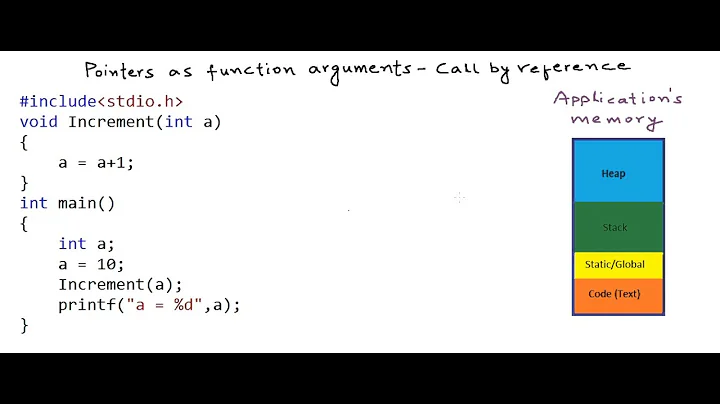What does the * (asterisk) symbol do near a function argument and how to use that in others scenarios?
Solution 1
This is the splat operator, which comes from ruby (and is thus not rails specific). It can be applied in two ways depending on where it is used:
- to "pack" a number of arguments into an array
- to split up an array into an argument list
In your function, you see the splat operator used in the function definition. The result is that the function accepts any number of arguments. The complete argument list will be put into args as an array.
def foo(*args)
args.each_with_index{ |arg, i| puts "#{i+1}. #{arg}" }
end
foo("a", "b", "c")
# 1. a <== this is the output
# 2. b
# 3. c
The second variant would be when you consider the following method:
def bar(a, b, c)
a + b + c
end
It requires exactly three arguments. You can now call this method like follows
my_array = [1, 2, 3]
bar(*my_array)
# returns 6
The splat applied in this case to the array will split it and pass each element of the array as an individual parameter to the method. You could do the same even by calling foo:
foo(*my_array)
# 1. 1 <== this is the output
# 2. 2
# 3. 3
As you can see in your example method, these rules do apply to block parameters in the same way.
Solution 2
This is a splat argument, which basically means that any 'extra' arguments passed to the method will all be assigned to *args.
Related videos on Youtube
user502052
Updated on May 24, 2022Comments
-
user502052 about 2 years
I am using Ruby on Rails 3 and I would like to know what means the presence of a
*operator near a function argument and to understand its usages in others scenarios.Example scenario (this method was from the Ruby on Rails 3 framework):
def find(*args) return to_a.find { |*block_args| yield(*block_args) } if block_given? options = args.extract_options! if options.present? apply_finder_options(options).find(*args) else case args.first when :first, :last, :all send(args.first) else find_with_ids(*args) end end end
![[SOLVED] Are you missing a using directive or an assembly reference Visual Studio](https://i.ytimg.com/vi/2n-bP9tPvFU/hq720.jpg?sqp=-oaymwEcCNAFEJQDSFXyq4qpAw4IARUAAIhCGAFwAcABBg==&rs=AOn4CLCILRmj2IdDTFRtmPlKcgMMEAn8Cw)




![Asterisk Tutorial 58 - Asterisk AMI Originate Dial [english]](https://i.ytimg.com/vi/eKYvAdHOhA4/hqdefault.jpg?sqp=-oaymwEjCOADEI4CSFryq4qpAxUIARUAAAAAGAElAADIQj0AgKJDeAE=&rs=AOn4CLBsR1NR6OC5FT5lGm7jx3vRExLK5g)
![Asterisk Tutorial 27 - Dynamic Queues - The Solution [english]](https://i.ytimg.com/vi/0ETawLts63E/hqdefault.jpg?sqp=-oaymwEcCOADEI4CSFXyq4qpAw4IARUAAIhCGAFwAcABBg==&rs=AOn4CLAgY-sNRUjxGIntqvb7RKUwtOl9xQ)

